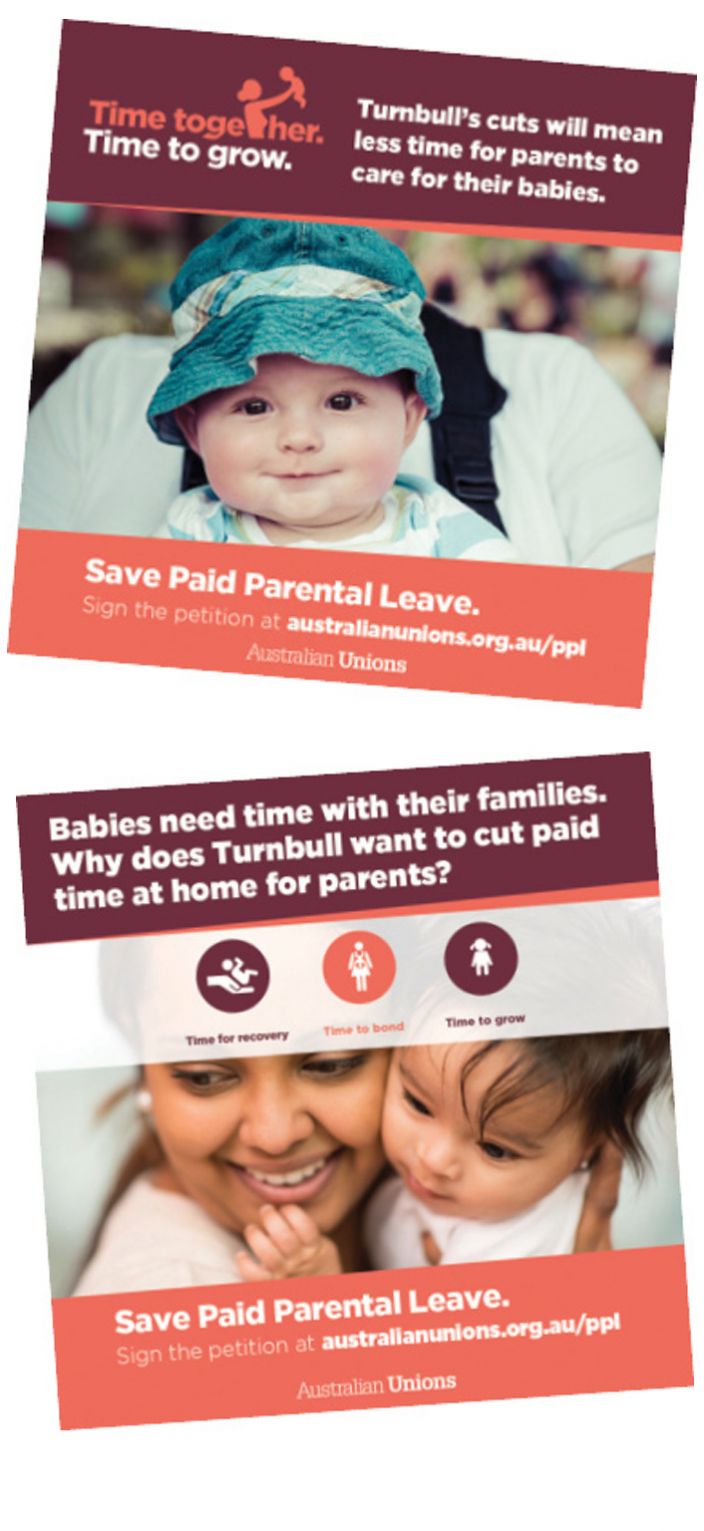
The Turnbull Government’s plans to cut the federal Paid Parental Leave Scheme are a direct attack on IEU members and their families.
The draft legislation which seeks to deny paid parental leave payments to parents who have access to some form of employer provided paid leave were due before the Senate on 7 November.
This draft legislation, if passed, will result in 80,000 new mothers across Australia being prevented from accessing $11,500 available under the current federal Paid Parental Leave Scheme because they work for an employer with existing paid leave schemes.
This represents nearly half of all currently eligible women (47%), many of whom are IEU members.
The current federal Paid Parental Leave Scheme, introduced in 2011 by the Labor Government, provides for 18 weeks of leave at the minimum wage of $672.70 per week to primary care givers who meet the work test and receive an income of $150,000 or less a year.
The federal Paid Parental Leave Scheme was never considered as a replacement for employer paid parental leave, but rather a basic scheme for parents that would be complemented by employer paid parental leave schemes.
In fact, the Federal Paid Parental Leave Act 2010 states its purpose as “the financial support of this Act is intended to complement and supplement existing entitlements to paid or unpaid leave in connection with the birth or adoption of a child”.
While IEU members have had many successes in negotiating paid employer parental leave, access to such paid leave varies in terms of length of leave entitlement or eligibility criteria. The federal Paid Parental Leave Scheme supplements the negotiated employer paid leave arrangements and allows women to access the extra time necessary for proper bonding and breastfeeding as recommended by the World Health Organisation.
Paid parental leave helps ensure that working mothers have the capacity to meet their child’s needs during the first few months of life while remaining in employment.
There is compelling evidence from the World Health Organisation that shows the health and welfare of mothers and babies benefit from a period of 26 weeks postnatal absence from work.
The current federal Paid Parental Leave Scheme is the mechanism by which employer leave arrangements can be lengthened to achieve the optimal leave period as recommended by World Health Organisation that enables sufficient time to care for the baby.
However, the draft legislation flies in the face of this recommendation and takes a backwards step in the overall support and care of children and working families.
If the legislation passes, it could be implemented as early as 1 January 2017 and thereby imposes an unexpected and unwarranted financial burden on those women who are due to give birth in 2017.
Universal access to the government scheme is not extraordinarily generous, but a simple mechanism to support child development, parents and workforce participation.


































































































































